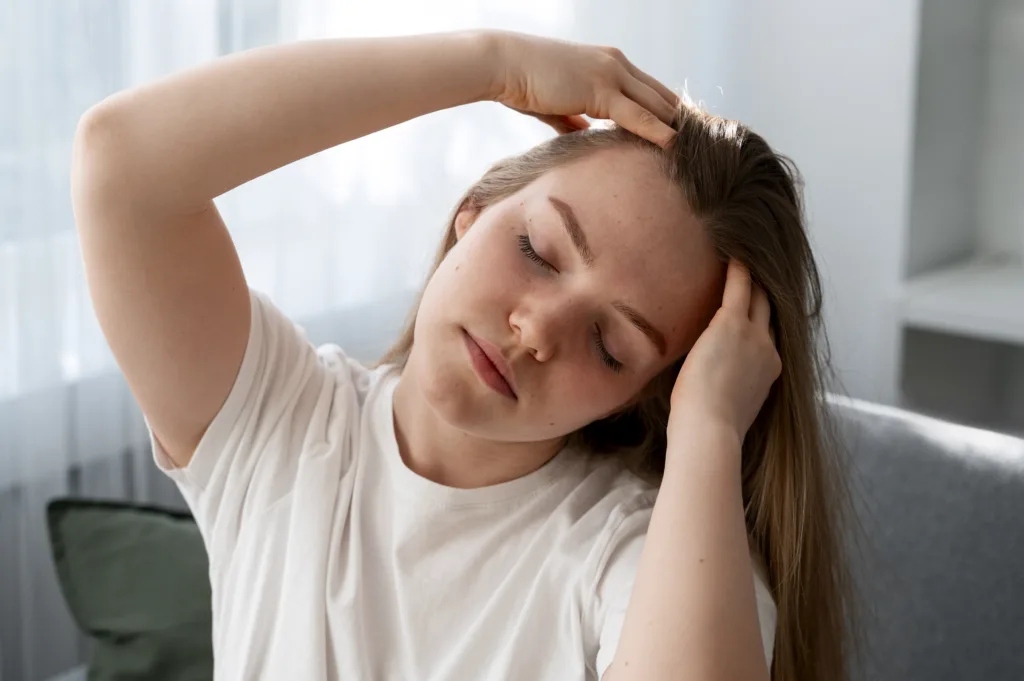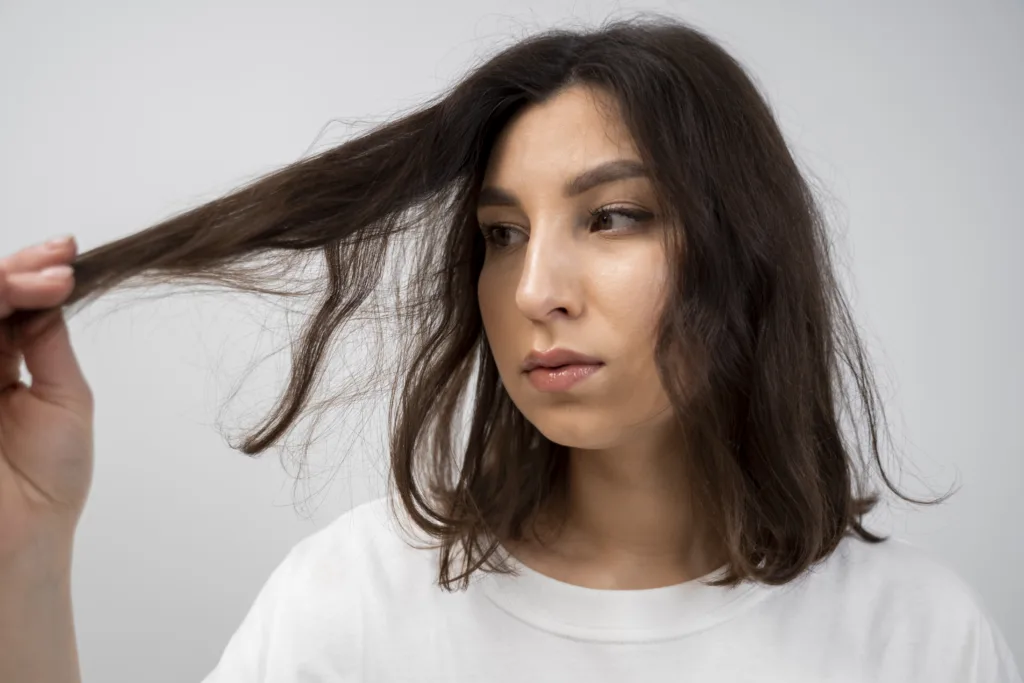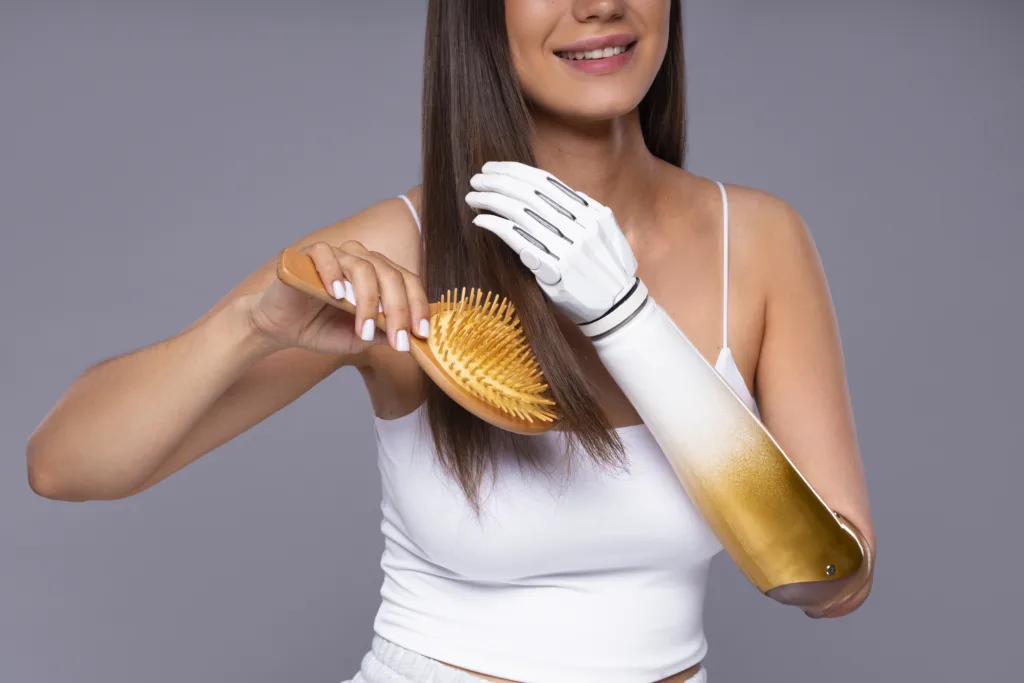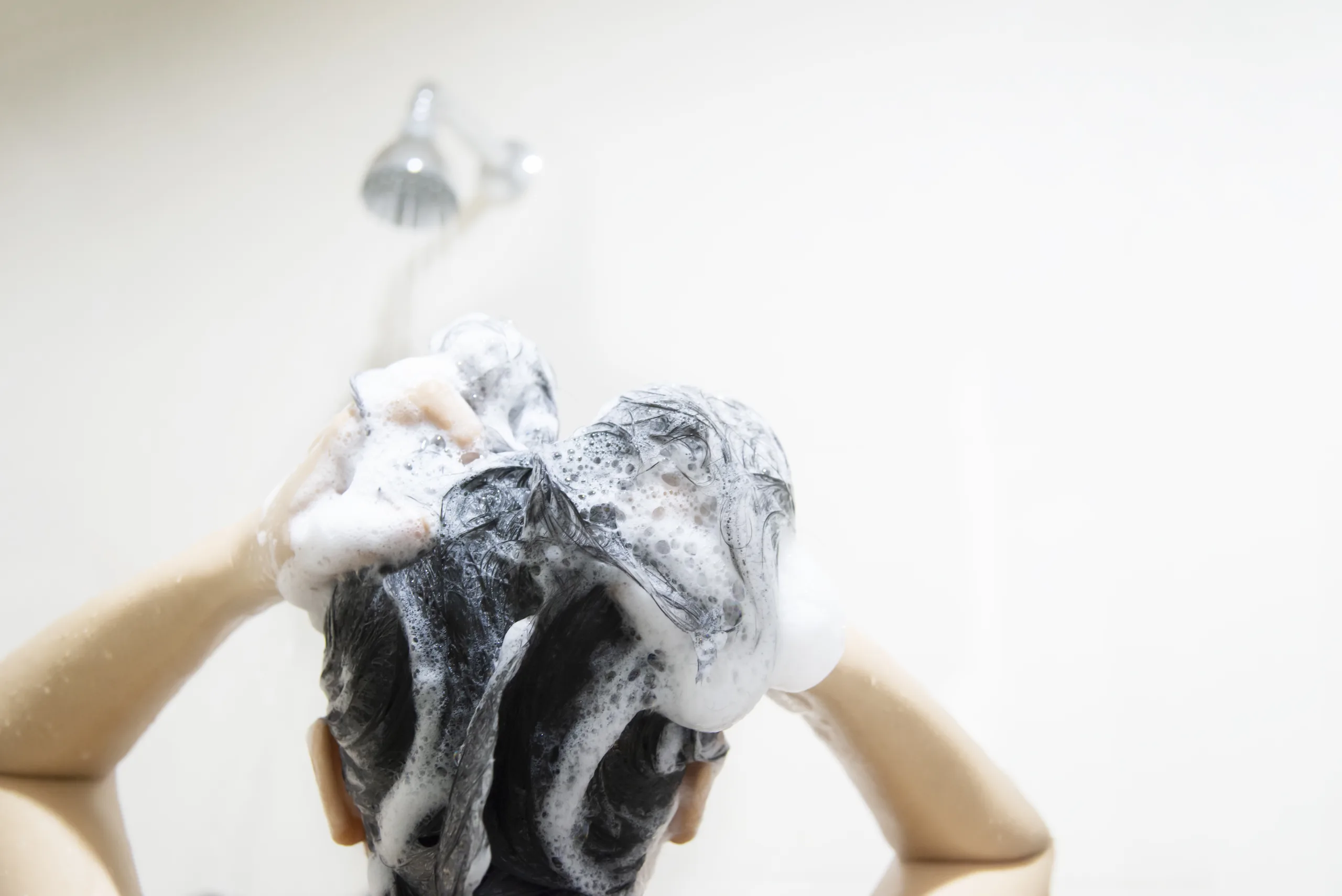Table of Contents
ToggleHow Often Should I Wash My Hair : Overview
When it comes to hair care routines, a common question people often ask is “how often should I wash my hair” to keep it healthy and clean? The answer is depends on your hair type, lifestyle, and scalp condition. It can also vary based on personal preferences.
Proper cleansing is essential to maintaining healthy hair. This article will help you determine the best hair wash routine, whether you have oily, curly, or normal hair. It provides useful information to help you keep your hair in the best condition possible.
Understanding Your Hair and Scalp
Before we get into specific recommendations, it’s essential to understand the basics of hair and scalp health. Your scalp produces natural oils called sebum, which help keep your hair moisturized and protected.
Washing your hair too frequently can strip these oils, leading to dryness and damage. Conversely, not washing often enough can result in a buildup of oil, dirt, and product residue, clogging pores and causing scalp issues.
Factors Influencing Hair Washing Frequency

Multiple factors determine how frequently you should wash your hair.
Hair Type
Your hair type significantly impacts how often you should wash it. Here’s a breakdown:
- Oily Hair: If you have oily hair, you might need to wash it every day or every other day. Oily hair tends to get greasy quickly, and frequent washing helps control excess oil.
- Dry Hair: For dry hair, washing too often can strip away necessary moisture. Washing once or twice a week is generally sufficient.
- Normal Hair: If your hair is neither too oily nor too dry, washing it two to three times a week should keep it clean and healthy.
- Curly or Coarse Hair: Curly and coarse hair types are usually drier because natural oils have a harder time traveling down the hair shaft. Washing once or twice a week helps retain moisture and manage curls.
Scalp Condition
The condition of your scalp is crucial in deciding your washing routine.
- Oily Scalp: An oily scalp might require more frequent washing to prevent oil buildup.
- Dry Scalp: If you have a dry scalp, washing less frequently can help maintain natural oils.
- Dandruff or Seborrheic Dermatitis: If you have scalp conditions like dandruff, you may need to use medicated shampoos and follow a specific washing regimen recommended by a dermatologist.
Lifestyle
Your daily activities and environment also impact how often you should wash your hair.
- Active Lifestyle: If you exercise regularly or sweat a lot, you might need to wash your hair more frequently.
- Polluted Environment: Living in a polluted area or spending a lot of time outdoors can lead to a buildup of dirt and pollutants in your hair, necessitating more frequent washing.
Hair Products
The types of products you use can influence your washing schedule.
- Heavy Products: Using heavy styling products, oils, or leave-in conditioners can lead to buildup and may require more frequent washing.
- Light Products: If you use light or minimal products, you might be able to go longer between washes.
Personalized Hair Washing Routines

Based on the factors above, here are some tailored recommendations for different hair types and conditions:
For Oily Hair and Scalp
If you have oily hair, you might feel the need to wash it daily. Here are some tips to manage oily hair:
- Use a Gentle Shampoo: Opt for a mild shampoo designed for daily use. Avoid harsh shampoos that can strip your scalp of natural oils, causing it to produce even more oil.
- Conditioner Placement: Apply conditioner only to the ends of your hair to avoid adding extra oil to your scalp.
- Dry Shampoo: On days when you don’t wash your hair, use dry shampoo to absorb excess oil and keep your hair looking fresh.
For Dry or Damaged Hair
Dry or damaged hair requires a more delicate approach:
- Moisturizing Shampoo and Conditioner: Use products specifically designed to add moisture and repair damage.
- Avoid Over-Washing: Washing your hair once or twice a week is usually enough. Over-washing can strip your hair of its natural oils, leading to more dryness.
- Deep Conditioning Treatments: Incorporate deep conditioning treatments or hair masks into your routine once a week to provide extra hydration and nourishment.
For Normal Hair
If your hair is neither too oily nor too dry, a balanced approach works best:
- Regular Washing: Washing your hair two to three times a week should suffice. This frequency keeps your hair clean without stripping away essential oils.
- Adapt as Needed: Adjust your washing schedule based on your activities and environmental factors. For instance, wash more frequently if you sweat a lot or are exposed to pollutants.
For Curly or Coarse Hair
Curly and coarse hair types benefit from a less frequent washing schedule:
- Hydrating Products: Use hydrating shampoos and conditioners to maintain moisture. Look for products that define curls and reduce frizz.
- Co-Washing: Consider co-washing (washing with conditioner only) between shampoo washes to cleanse without stripping moisture.
- Weekly Washes: Washing your hair once or twice a week helps retain natural oils and keeps your curls defined and manageable.
Additional Tips for Healthy Hair Washing

Regardless of your hair type, there are some general practices you can follow to ensure your hair stays healthy and vibrant:
- Use Lukewarm Water: Washing your hair with hot water can strip it of natural oils and cause dryness. Use lukewarm water instead to keep your hair healthy.
- Avoid Over-Brushing: Brushing your hair too often can stimulate oil production and cause breakage. Brush gently and only as needed.
- Protect Your Hair: When styling, use heat protectants to shield your hair from damage caused by heat styling tools. Also, consider protective hairstyles that minimize damage.
- Scalp Massage: Give yourself a gentle scalp massage while washing to stimulate blood flow and promote healthy hair growth.
- Regular Trims: Get regular trims to prevent split ends and maintain the overall health of your hair
Common Myths About Hair Washing
There are several myths about hair washing that can cause confusion. Let’s debunk a few:
- Myth: You Should Wash Your Hair Every Day: While this may be true for some people with very oily hair, most people do not need to wash their hair every day. Over-washing can strip your hair of natural oils and lead to dryness and damage.
- Myth: Dirty Hair Grows Faster: Hair growth is primarily determined by genetics and overall health. While it’s important not to over-wash, keeping your hair clean is also crucial for a healthy scalp environment.
- Myth: Shampooing Less Frequently Saves Money: While you might use less shampoo by washing less often, you might need more intensive treatments to repair any damage caused by infrequent washing.
Summary
Determining how often to wash your hair can seem like a daunting task, but it’s all about finding the right balance for your hair type, scalp condition, and lifestyle.
By understanding your unique hair needs and following the tips provided in this guide, you can develop a washing routine that keeps your hair clean, healthy, and beautiful.
Remember, there is no one-size-fits-all answer to hair washing frequency. Pay attention to what your hair and scalp need, and tweak your routine accordingly. With the right care and attention, you can achieve the best possible hair health and maintain those gorgeous locks you love
Frequently Asked Question's
Q. How do I know if I’m washing my hair too often?
A: Signs that you might be washing your hair too often include dryness, brittleness, and increased breakage. Your scalp might also become dry and itchy.
If you notice these symptoms, try reducing the frequency of your washes and use more moisturizing products.
Q. What should I do if my scalp gets oily quickly but my hair is dry?
A: This is a common issue, and balancing the needs of your scalp and hair can be tricky. Try washing your hair every other day with a gentle shampoo that is formulated for oily scalps.
Apply conditioner only to the ends of your hair to avoid adding extra oil to your scalp. Additionally, using a dry shampoo in between washes can help manage oiliness without over-washing.

